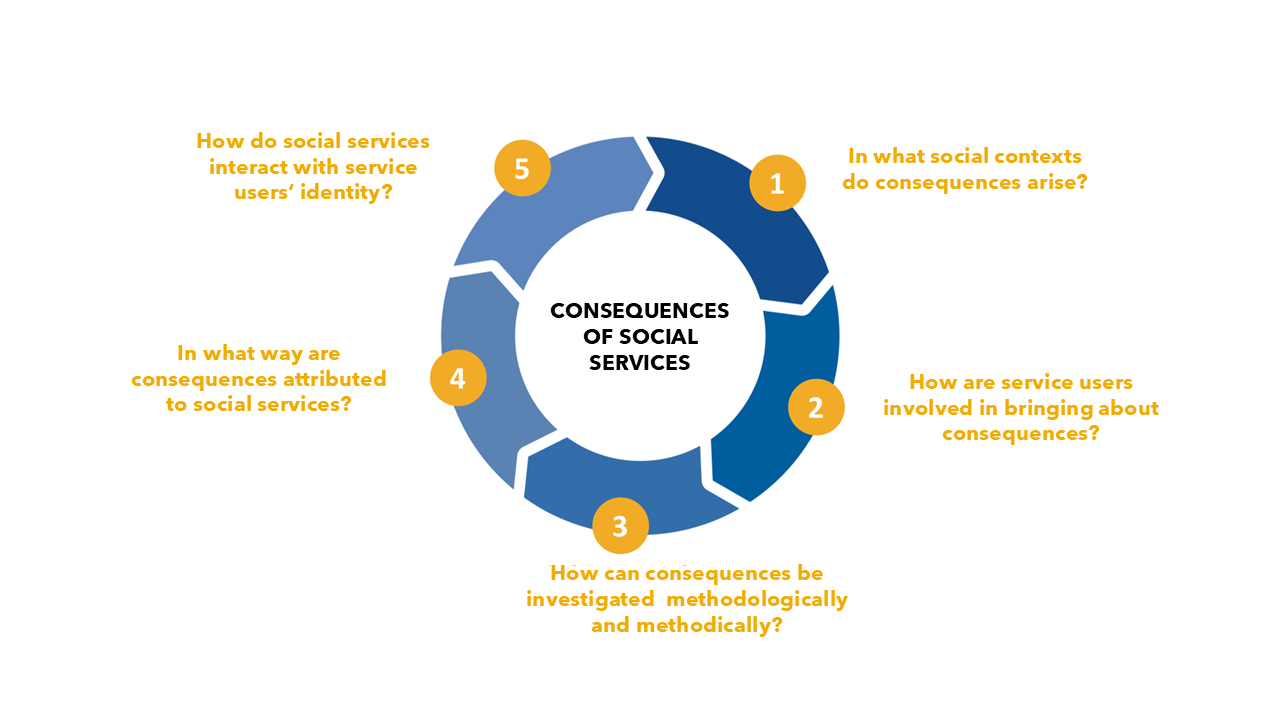The five key questions bind the Research Training Group together. They intersect with individual theoretical frameworks, allowing for an interdisciplinary discussion among the doctoral researchers. A constant examination of the key questions will be fundamental for each doctorate.

1 In what social contexts do consequences arise?
Unintended consequences of social services arise in complex social contexts in which these services are embedded. It is therefore necessary to adopt as open an approach as possible to determine the social context to which the consequences can be ascribed. This open approach makes it possible to identify and analyse precisely those consequences that are not institutionally stipulated.
2 How are services users involved in bringing about consequences?
Service users have a significant involvement in (co)producing consequences. However, depending on the research methods, disciplines and research interests, service users are understood in different ways. These different approaches are a constitutive characteristic of the Research Training Group. Different theoretical reference points can be used to make apparent how service users are specifically involved in bringing about consequences.
3 How can consequences be investigated methodologically and methodically?
Exploring various consequences requires applying a wide range of research methods. For instance, (partially) narrative interviews will make it possible to analyse consequences in service users’ biographies and self-presentations. Using statistical analysis, patterns and trends in relations between various factors can be identified, assessed and comparatively quantified.
4 In what way are consequences attributed to social services?
Research into consequences is intrinsically intertwined with the concept of causality. The dialogue between different research traditions and their implications for theorising causality is a special feature of the Research Training Group. Due to the interdisciplinary nature of the group, heterogeneous conceptions of causality are made visible, which are of constitutive importance in substantiating consequences.
5 How do social services interact with service users’ identity?
Social services shape identities. When receiving social services, service users are confronted with different effects on their identities and constraints on identity. There are different ways, depending on the discipline, of theorising over and empirically recording this. This focus allows researchers to take different perspectives on unintended or unexpected consequences.


